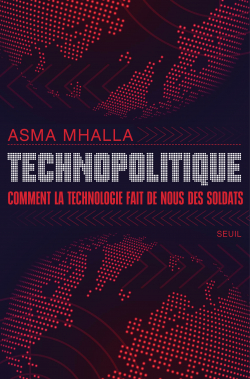Les classiques des Éditions de l'Homme présentés par nos éditrices.
Plus d'infos sur le livre : https://bit.ly/decouvrir-un-sens-a-sa-vie
Au cours des trois années qu'il a passées dans un camp de concentration lors de la Seconde Guerre mondiale, Viktor Frankl a découvert, autant pour lui-même que pour les autres, que le fait d'avoir un but et un sens à sa vie l'aidait à survivre aux conditions inhumaines de détention. Cette recherche de sens a donné naissance à la logothérapie, une approche qu'il a utilisée tout au long de sa vie en captivité et, par la suite, dans la pratique de la psychiatrie.
Dans cet ouvrage, l'auteur révèle trois voies permettant de donner un sens à l'existence : la voie de l'accomplissement, qui consiste à réaliser sa mission ou à créer une oeuvre; la voie de l'amour qui mène à l'établissement de liens significatifs et favorise le contact avec la nature et l'art; et la voie de la transcendance qui incite l'individu à adopter une attitude positive face à la mort et aux souffrances inévitables.
Grâce à ce livre puissant et inspirant, porteur d'un message d'espoir, vous saurez enfin revenir à l'essentiel pour prendre votre vie en main.

Viktor E. Frankl
EAN : 978B01K2WCA7Q
Non Basic Stock Line (30/11/-1)
/5
33 notes
Non Basic Stock Line (30/11/-1)
Résumé :
"If you read but one book this year, Dr Frankl's book should be that one." Los Angeles Times
One of the outstanding classics to emerge from the Holocaust. Man's Search for Meaning is Viktor Frankl's story of his struggle for survival in Auschwitz and other Nazi concentration camps. Today, this remarkable tribute to hope offers us an anvenue to finding greater meaning and purpose in our lives.
"Viktor Frankl... is one of the moral heroes... >Voir plus
One of the outstanding classics to emerge from the Holocaust. Man's Search for Meaning is Viktor Frankl's story of his struggle for survival in Auschwitz and other Nazi concentration camps. Today, this remarkable tribute to hope offers us an anvenue to finding greater meaning and purpose in our lives.
"Viktor Frankl... is one of the moral heroes... >Voir plus
étiquettes
Ajouter des étiquettes
Que lire après Man's Search for MeaningVoir plus
Critiques, Analyses et Avis (1)
Ajouter une critique
This book was on my to-read list for the longest time. I kept putting it off for all kinds of reasons. I was mostly afraid that it would speak of religion. Why did I finally pick it up to read? The effect of the pandemic on me maybe. Curious about the meaning of my life. Not sure exactly why. But it ended up being the right time for me, and I found the book to be a lot better than what I had expected. The small last part was fairly hard to read, but the book as a whole was still awesome, non-religious, non-judgmental, inspirational, and powerful. It examines the importance of being aware of our inner freedom, of nourishing it, of striving to develop our inner strength, of being conscious of our responsibility, and ultimately of choosing love. I might read it again.
Citations et extraits (4)
Ajouter une citation
Everything can be taken from a man but one thing: the last of the human freedoms-to choose one's attitude in any given set of circumstances, to choose one's own way.
Life ultimately means taking the responsibility to find the right answer to its problems and to fulfill the tasks which it constantly sets for each individual. These tasks, and therefore the meaning of life, differ from man to man, and from moment to moment. Thus it is impossible to define the meaning of life in a general way.
"Life " does not mean something vague, but something very real and concrete, just as life's tasks are also very real and concrete.(...) No situation repeats itself, and each situation calls for a different response. There is only one right answer to the problem posed by the situation at hand.
"Life " does not mean something vague, but something very real and concrete, just as life's tasks are also very real and concrete.(...) No situation repeats itself, and each situation calls for a different response. There is only one right answer to the problem posed by the situation at hand.
To live is to suffer. To survive is to find meaning in the suffering. If there is a purpose in life at all, there must be a purpose in suffering and dying. But no man can tell another what this purpose is. Each must find out for himself and must accept the responsibility that his answer prescribes.
Life in a concentration camp tore open the human soul and exposed its depths.
Lire un extrait
Videos de Viktor E. Frankl (4)
Voir plusAjouter une vidéo
autres livres classés : psychologieVoir plus
Les plus populaires : Non-fiction
Voir plus
Les Dernières Actualités
Voir plus
Autres livres de Viktor E. Frankl (13)
Voir plus
Quiz
Voir plus
Freud et les autres...
Combien y a-t-il de leçons sur la psychanalyse selon Freud ?
3
4
5
6
10 questions
433 lecteurs ont répondu
Thèmes :
psychologie
, psychanalyse
, sciences humainesCréer un quiz sur ce livre433 lecteurs ont répondu









































